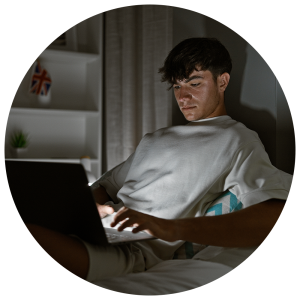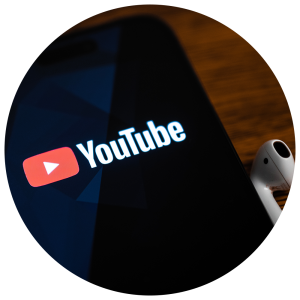Sophie* is mother to three children. Among them, Thomas*, a brilliant teen but with a fragile self-esteem. Subject to high anxiety, the health crisis of 2020 contributed to his isolation from an already small and fragile social circle. His refuge: YouTube. Hours and hours of screen time every day and a growing discomfort gave way to dark thoughts. Faced with this situation, Sophie seeked help and finally found it at Gambling: Help and Referral and the Together program, developed to provide help to loved ones of those with an addiction.
Today, Thomas is doing better, as is his family. The fight isn’t over though: the path to rehabilitation is long and uncertain. But already, Sophie can attest to her son’s progress and how Bianka, Counselor for the Together program, brought her to entirely rethink her relationship with her son’s addiction and to equip herself to better help him. Here is her story.
“I have known since Thomas was little that screens have a different impact on him. I have two other kids that don’t react the same way to screens. Already back then, he would react when I turned off the TV. Because of his Giftedness diagnosis, he needs a lot of stimuli. But he also has a negative view of himself, a feeling that he is not popular. The pandemic exacerbated all that right in the middle of secondary 3, 4 and 5, a key period in our development, when we have experiences, do things… When he arrived in Cegep, he had a few friends but despite that, screens were very present in his life.
“In the beginning, our strategy was one of control.”
In the beginning, our strategy was one of control: we forced him to go out, to play sports… this worked well with our other children, but I think he needed something else, and we had a hard time understanding.
In 2023, while I was on a trip with my partner, it got very difficult for Thomas to the point of him having dark thoughts. I had left food in the refrigerator that was barely touched. He had huge dark circles under his eyes and ended up telling us he was not well and had even thought of suicide. Meanwhile I had noticed that he spent 7, 8 or 9 hours in front of the computer.


